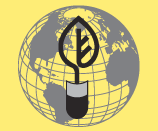|
Propagation of Ornamental Plants
7(4): 216-218, 2007
EFFECTS OF CONTINUOUS 24-HOUR PHOTOPERIOD ON GROWTH AND PHOTOSYNTHESIS
IN PLATYCODON GRANDIFLORUM (JACQ.) A. DC. PLANTS
Yulan Xiao1,2*, Yongtai Zhang2, Kang Dang2, and Dongshuang Wang2
1College of Life Science, Capital Normal University, Beijing 100037, China,
*Fax: + 86-10-68901456, *E-mail: ylxiao@yahoo.com
2Yangtze Delta Region Institute of Tsinghua University, Jiashan,
Zhejiang 314100, China, *Fax: 86-573-4291105
Abstract
The light and dark periods can be easily controlled by the use of artificial lighting. To evaluate the effects of continuous light on growth and photosynthesis in Platycodon grandiflorum (Jacq.) A. DC., a valuable Chinese medicinal herb, seedlings of the species were grown for 20 days at temperature 22?C, either under a 24 h photoperiod with a 150 μmol m-2 s-1 photosynthetic photon flux (PPF) and a 500 μmol mol-1 CO2 concentration or under a 12 h photoperiod with a 300 μmol m-2 s-1 PPF and a 1000 μmol mol-1 CO2 concentration. Leaf area, fresh weight, dry weight were respectively, 1.9, 1.5 and 1.4 times greater in the 24 h photoperiod treatment than those in the 12 h photoperiod treatment. In addition, the use of continuous light significantly stimulated the chlorophyll formation and improved the development of root system. Moreover, the plants grown under continuous light probably fixed more carbon in photosynthesis per day due to greater dry mass, although leaf net photosynthetic rate was lower, compared with those in the 12 h photoperiod treatment with double PPF and double CO2 concentration. Therefore, providing a 24 h photoperiod with a low PPF should be beneficial for producing P. grandiflorum seedlings in terms of enhancing plant growth, and reducing production cost due to the reduction in the number of lamps and CO2 consumption.
Key words: chlorophyll content, CO2 concentration, continuous light, seedlings
|



